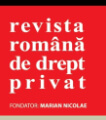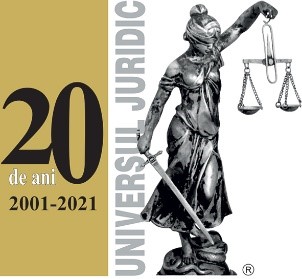Nr. 1 (2022): Electronic commerce

The volume in front is the result of good legal research intentions. It is intended to draw the attention of the Romanian legal community to the challenges posed by the evolution of the information society and the possible far-reaching changes it may bring about in traditional law. The idea behind the texts is related to checking the resistance of common law to new legal formulas, as well as its ability to reshape itself according to the modern demands of the information society. This is why one of the persistent questions (which can be found throughout some of the studies collected in the volume) is whether we can speak of a law of electronic contracts or a law of electronic commerce. Or, more generally, can one speak of a law of the digital society, aimed at regulating various aspects, from the ownership and control of digital elements, digital contracts, liability for digital products, for the "acts and deeds" of artificial intelligence, the protection of personal data, to the digitisation of current procedures in company law, procedural law, public law, etc.?
The approximate answer and, moreover, the premise from which we started is that, if we can speak, for practical or heuristic reasons, of a law of electronic contracts, just as we could speak of a law of e-commerce or another law of legal "specificities", we cannot speak from a technical-legal perspective of an autonomous law of electronic contracts (or artificial intelligence or e-commerce).
The mere regulation of the specificities (which may take the form of exceptions) of certain areas of law does not necessarily lead to the conclusion of the autonomy of the law relating to that area of regulation. Consequently, as pointed out by reputable authors, terms such as 'computer contracts' or 'electronic contracts', or 'electronic content', 'electronic services' and a whole list of specialised terminology are in reality only 'descriptive expressions', leaving it to the jurist to identify how this specialised law is subject to the general principles of ordinary law. In the case of Romania, this common law is none other than that of the Civil Code, and its general principles are precisely those enunciated directly or indirectly by it. As will be seen in some of the studies in this issue, even the creative conception of the legislator in this matter is permanently referable to common law, whether we refer to the European legislator or the national legislator.
As for the content of the volume, it is marked by variety and incompleteness. These potential shortcomings could be eliminated by volumes devoted to specialised studies. For the time being, the limits of the Romanian jurists' desire to write have forced us to produce an eclectic volume. The same limitations have also prevented us from providing a complete picture (at least from a legal point of view) of the challenges posed by electronic tools. But we are convinced that, despite its shortcomings, this volume will be a useful source of self-verification of legal reasoning for lawyers in Romania.








